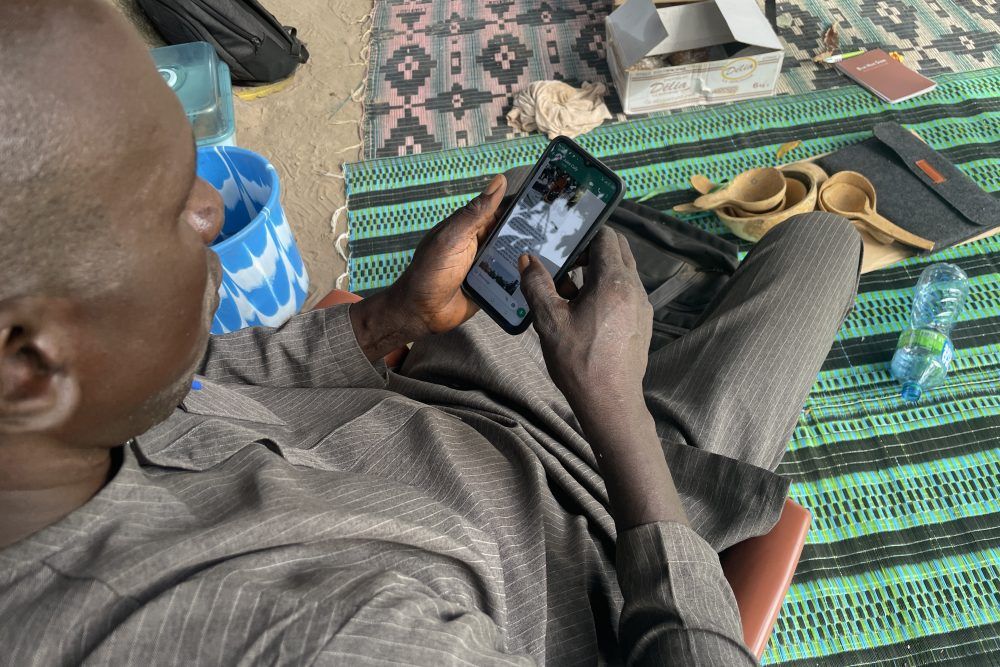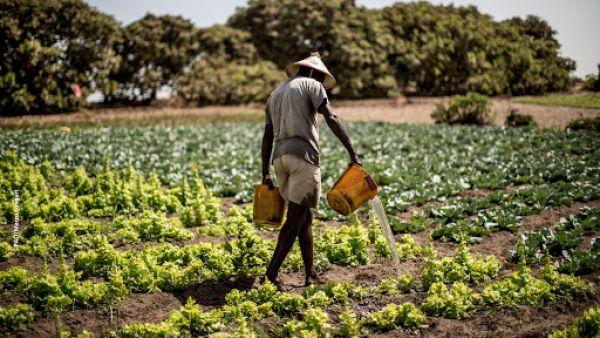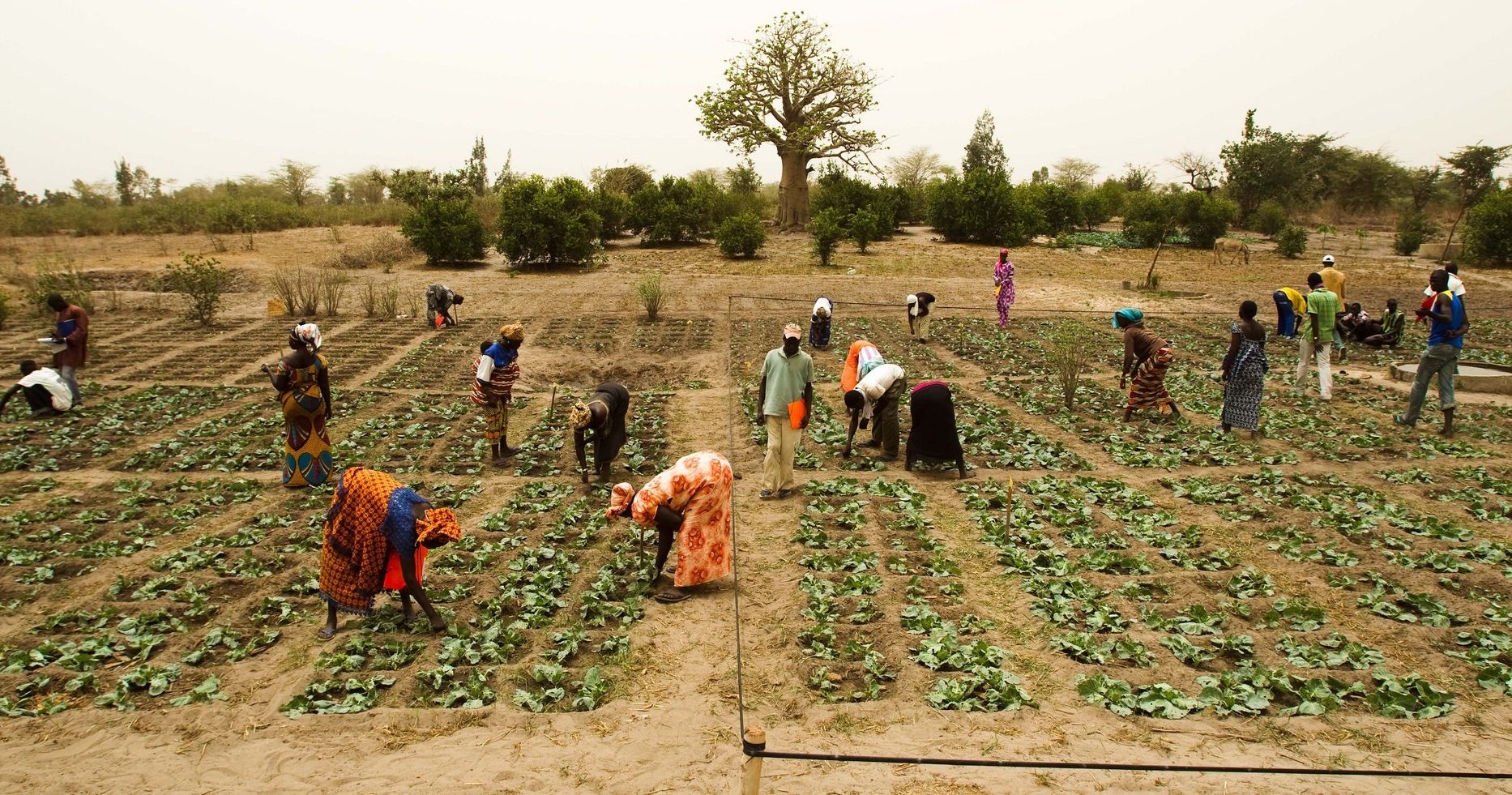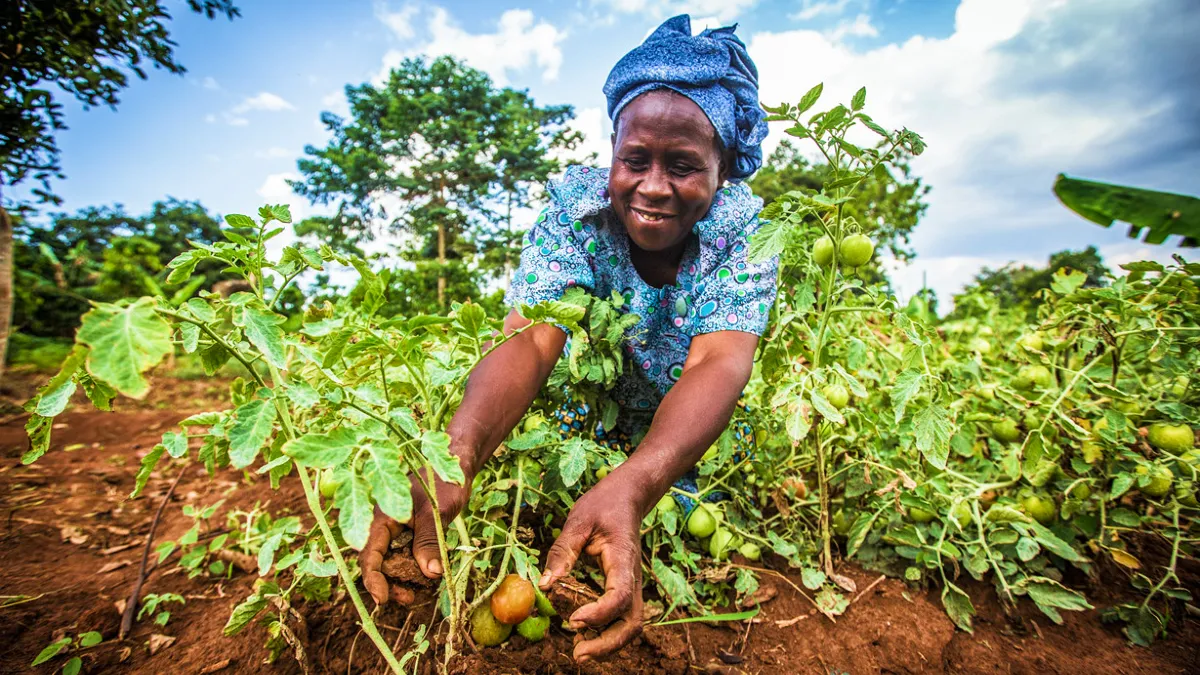Binnen de digitale domeinen van onze smartphones voorzien WhatsApp-groepen in diverse doeleinden: het uitwisselen van grappige vadergrappen, het vragen van stijladviezen voor een avondje uit met vrienden, of het organiseren van vergaderingen met professionele tegenhangers. Maar is dat alles? Nee. WhatsApp-groepen transformeren nu het agrarische landschap in Senegal. In een land waar het analfabetisme hoog is, zijn WhatsApp-spraakberichten een cruciaal hulpmiddel geworden voor boeren, onderzoekers en NGO's om inzichten te delen en effectief samen te werken.

In een land waar een aanzienlijk deel van de bevolking voornamelijk communiceert in talen die mondeling zijn en geen overeenkomstige geschreven vorm hebben, zijn WhatsApp-spraakberichten een doorbraak geworden, waardoor boeren barrières kunnen overwinnen en productieve uitwisselingen kunnen aangaan. Ousmane Sambou, een boer uit het zuiden van Senegal, is een van de vertegenwoordigers van de diepgaande impact van deze technologie. Voorheen afhankelijk van traditionele kennis die van ouderen werd doorgegeven, breidde Sambou's wereld zich uit toen hij zich aansloot bij een lokale WhatsApp-groep gewijd aan landbouw.

Binnen deze groepen delen gebruikers vrijuit spraakberichten met details over geavanceerde landbouwmethoden, milieuvriendelijke oplossingen en strategieën om plagen zonder chemicaliën te bestrijden. Deze technologie fungeert als een brug naar een schat aan informatie, die landbouwpraktijken vooruit helpt en het delen van cruciale informatie zoals weersupdates, trainingsessies en discussies over verschillende landbouwtechnieken vergemakkelijkt.
Deze WhatsApp-groepen verbinden bijna 50 leden per groep en bereiken een collectief totaal van 15.000 deelnemers in heel Senegal.
Raphaël Belmin, een onderzoeker, ziet het potentieel van deze spraakberichten om de kloof in onderwijs en training onder boeren te overbruggen. Deze dynamiek was vooral duidelijk tijdens de nasleep van het Rusland-Oekraïne conflict, wat leidde tot sterk stijgende meststoffenprijzen. Boeren, geconfronteerd met de urgentie om de voedselzekerheid te handhaven, gebruikten WhatsApp-spraakberichten om kosteneffectieve alternatieven te verkennen en gezamenlijk strategieën te bedenken.

Een opmerkelijk voorbeeld van de impact van WhatsApp betreft de verspreiding van een krachtige zelfgemaakte meststoftechniek. Deze techniek, toegeschreven aan de Latijns-Amerikaanse onderzoeker Jairo Restrepo Rivera, werd via gedetailleerde spraakberichten gedeeld door het Senegalese bureau voor landbouwadvies. Het resultaat? Een bloeiend netwerk van meer dan 10.000 boeren die deze techniek hebben omarmd, waardoor hun afhankelijkheid van dure synthetische meststoffen is verminderd.
Het belang van WhatsApp reikt verder dan de agrarische sector. Boeren zoals Moustapha Dienne hebben de kracht van het platform benut om hun markten uit te breiden en direct contact te maken met klanten. De mogelijkheid om producten te delen via WhatsApp-statusupdates heeft het verkoopproces gestroomlijnd en de manier waarop kleine boeren zaken doen getransformeerd.
Het gebruik van WhatsApp spraakberichten laat zien hoe technologie kan co-evolueren met menselijke samenlevingen, vooral in gebieden met unieke taalkundige en culturele contexten.
Terwijl stemmen weerklinken door het digitale landschap, worden traditionele barrières doorbroken, waardoor de weg wordt vrijgemaakt voor een inclusieve en onderling verbonden agrarische gemeenschap. Het gebruik van WhatsApp-spraakberichten laat zien hoe technologie kan evolueren samen met menselijke samenlevingen, vooral in gebieden met unieke taalkundige en culturele contexten. Het toont aan hoe technologie zich kan aanpassen aan lokale behoeften en communicatie en samenwerking binnen gemeenschappen kan vergemakkelijken, waardoor uiteindelijk hun relatie met de natuur en landbouw wordt versterkt.



Comments (0)
Share your thoughts and join the technology debate!
No comments yet
Be the first to share your thoughts!